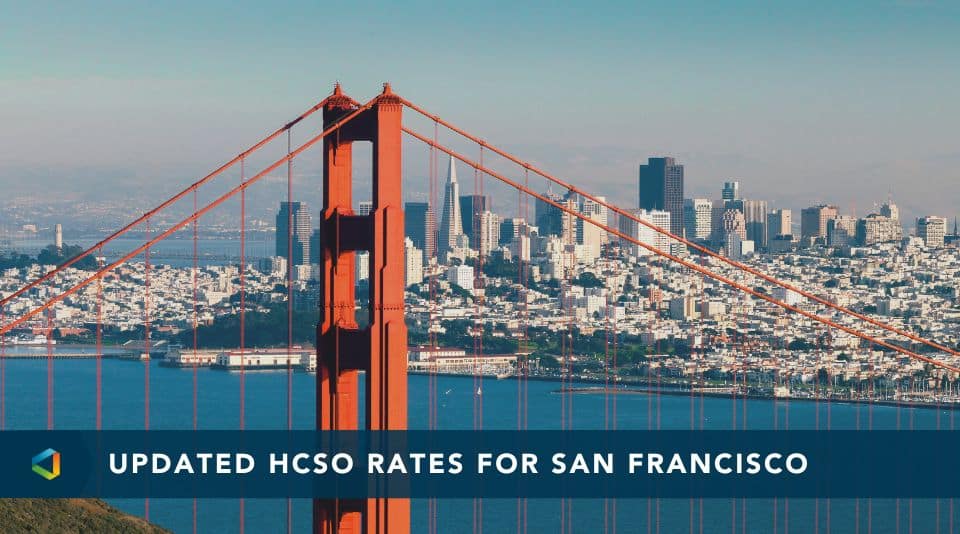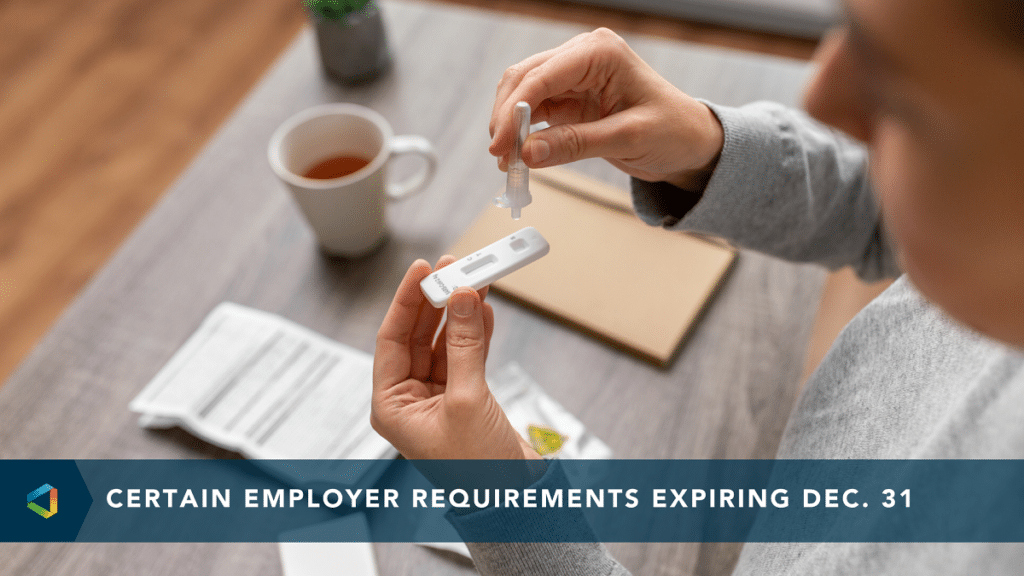Compliance Confidence
San Francisco Health Care Security Ordinance Reporting Due May 2, 2022
San Francisco Health Care Security Ordinance Reporting Due May 2, 2022
After a two-year hiatus, San Francisco's Health Care Security Ordinance (HCSO) has resumed, requiring employers to complete an annual report.
All employers covered by the HCSO must:
- meet Employer Spending Requirements (ESR) by making required health care expenditures on behalf of all covered employees;
- maintain records showing compliance with the ESR;
- post a notice in the workplaces with covered employees; and
- submit an annual reporting form to the Office of Labor Standards Enforcement (OLSE).
Covered Employers and Employees
An employer is covered by the HCSO for any calendar quarter if it meets the following three conditions:
- employs one or more workers within the geographic boundaries of the City and County of San Francisco;
- is required to obtain a valid San Francisco business registration certificate, and
- is a for-profit business with 20 or more employees or a nonprofit organization with 50 or more employees. The employer must count all employees for this purpose – not just those working in San Francisco
An employee is considered to be a covered employee if they work for a covered employer and:
- is entitled to be paid the minimum wage;
- has been employed by their employer for at least 90 calendar days;
- performs at least 8 hours of work per week within the geographic boundaries of San Francisco; and
- does not meet one of the exemption criteria
Employer Reporting Requirement
Covered employers are required to submit an Annual Reporting Form each year by April 30th. Even employers who already meet minimum spending requirements through their company-paid premiums are required to do annual reporting.
Filing is done online with regulators making the form available by April 1 each year. Employers can sign up for notifications each year when the form is available here.
The reporting asks for details on the number of employees eligible for HCSO as well as the company’s spending on health care premiums and contributions to HSAs or the San Francisco-run City Option.
Employers are not required to submit a 2021 report if:
- they employed fewer than 20 people (including people employed outside of San Francisco) in each of the four calendar quarters of 2021 and they do not have a contract with the City and County of San Francisco; or
- they had no employees within the geographic boundaries of San Francisco (including work from home employees) in any quarter of 2021
Employer Spending Requirement
The HCSO requires covered employers to spend a certain dollar amount on health care (i.e. medical, dental, vision, prescription drug) for covered employees. The minimum health care expenditure for each covered employee is determined quarterly by multiplying the employee’s total number of payable hours in the quarter by the applicable health care expenditure rate. Payable hours include hours paid and hours entitled to payment, such as paid time off or paid leave, earned within San Francisco. Covered employers must make irrevocable health care expenditures each quarter no later than 30 days after the end of the preceding quarter. Simply providing additional pay to the employee is not considered a valid health care expenditure.
Note: Compliance with the HCSO employer spending requirements does not alleviate the need for applicable large employers to comply with the Affordable Care Act (ACA) Employer Shared Responsibility provisions. Additionally, amounts paid for health care expenditures that satisfy the ACA may not fully satisfy the HCSO employer spending requirement.
| Employer Size | 2021 Expenditure Rate | 2022 Expenditure Rate |
|---|---|---|
| Small: Businesses with 0-19 employees and nonprofits with 0-49 employees | Exempt | Exempt |
| Medium: Businesses with 20-99 employees and nonprofits with 50-99 employees | $2.12 per hour payable | $2.20 per hour payable |
| Large: All employers with 100 or more workers | $3.18 per hour payable | $3.30 per hour payable |
Notice and Record Retention Requirements
Covered employers must post the unaltered official OLSE notice in a conspicuous place at any workplace where any covered employee works. Additionally, for a period of four years from each covered employee’s date of employment, a covered employer must keep the following records:
- Itemized pay statements
- The employee’s address, telephone number, and date of first day of work
- Records of health care expenditures made
- Documentation supporting any employee exemption
- Documentation of quarterly health care expenditures
Penalties
Failure to comply with the HCSO may result in maximum administrative penalties for the following violations:
| Violation | Maximum Penalty |
|---|---|
| Failure to make the required minimum Health Care Expenditures within five business days of the quarterly due date (30 days after the conclusion of each quarter) | $100.00 for each employee for each quarter that the violation occurred |
| Failure to submit the Annual Reporting Form | $500.00 for each quarter that the violation occurs |
| Retaliation against employees | $100.00 for each person who is the target of the prohibited action for each day the violation occurs |
| Refusing to allow OLSE access to employer records | $25.00 for each worker whose records are not provided for each day the violation occurs |
| Failure to maintain or retain accurate and complete records | $500.00 for each quarter that the violation occurs |
| Failure to post the Official HCSO Notice | $25.00 per day for each workplace or job site where the Notice is not posted |




